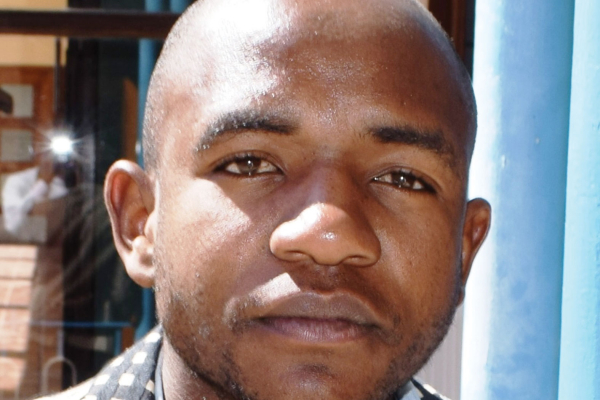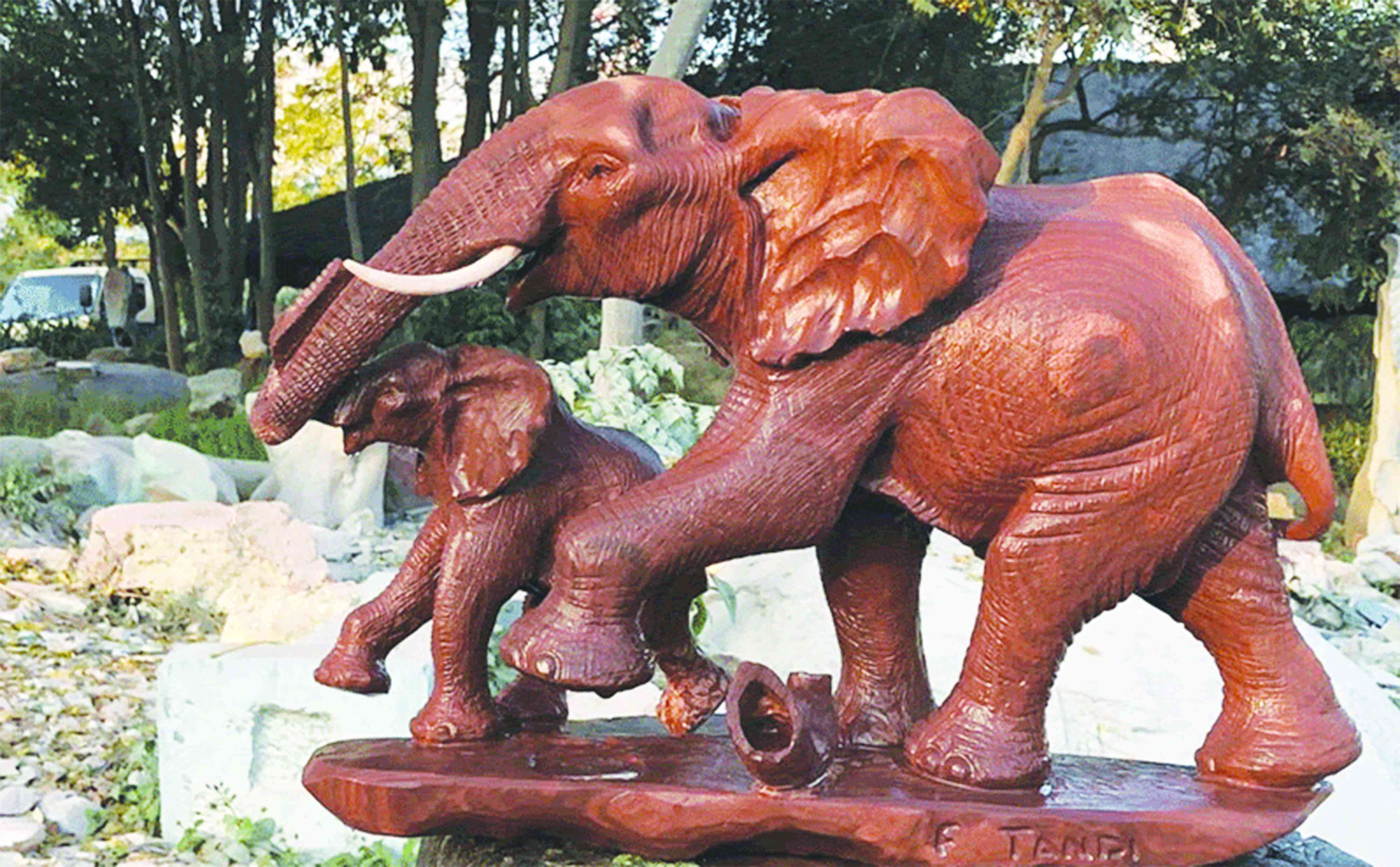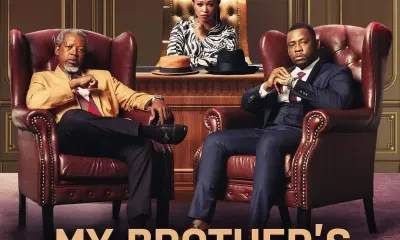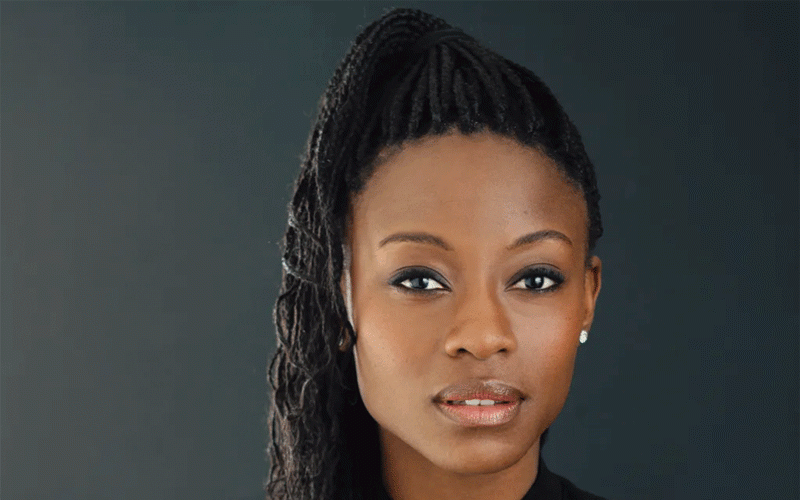
In this week’s edition of Between the Lines, NewsDay Correspondent Beniah Munengwa (ND) speaks to renowned Namibian poet and theatre practitioner, Keamogetsi Joseph Molapong (KM), about his writing and publishing experiences in Namibia.
By Beniah Munengwa
ND: Most people know you mostly as a poet? But who’s Molapong and how does he view art?
KM: Molapong is a Namibian by birth with lineage that links him to Botswana. He is a very introspective and at times boring individual, who does not conform to any social and political status quo. I am the least of all.
Art is the platform that gives individuals the space and time to express thoughts, ideals and at times aborted dreams.
Art is the freedom one has to enjoy creativity without the conventional confines of rules and expectations.
ND: What influence does theatre have in changing perspectives?
KM: I use poetry and theatre interchangeably as tools to inform, influence and engage communities and individuals in social economical issues.
- Chamisa under fire over US$120K donation
- Mavhunga puts DeMbare into Chibuku quarterfinals
- Pension funds bet on Cabora Bassa oilfields
- Councils defy govt fire tender directive
Keep Reading
As a theatre for development practitioner, I used theatre as a developmental tool throughout Namibia, especially after independence, when social development was a priority.
Theatre when used as an intervention strategy can bridge some social challenges the conventional development strategies have such as language, illiteracy, technology, etc.
With a focus on engaging the community and audience, theatre can be used as a rabbit appraisal technique in information gathering and encouraging direct communication between the community and development agencies or local authorities.
Theatre is interactive and interpersonal with a direct and immediate response and reactions to pertinent issues.
ND: Considering your poetry to be mostly political, what role can art play in shaping the destiny of Africa?
KM: Poetry is an intellectual output of social, economical deliberations and philosophy and ideologies.
Many of the national and continental issues can better be transferred and deliberated through poetry. Poets and artistes in general have an important part to play in communicating observations, experiences and convictions. For a villager who experiences the wrath of exploitation, to have his emotional frustration recognised.
Artistes should realise that they are more than just creators of art; they are opinion leaders, with a wider audience that consume their art work. They should, therefore, make use of that advantage to encourage the discussion of social-economical issues.
ND: Namibia’s government, unlike Zimbabwe’s, supports publishing houses. How can Zimbabwe follow the same path?
KM: The Namibian government does not support publishing houses per se. I can with certainty say the government does not interfere with what kinds of books are published in Namibia. As long as the fundamental human rights are observed and other laws are adhered to, anything can go. The law still rules and universal rights like association, speech and expression are respected and maintained at all times.
The Namibian government is indeed supportive of locally produced literature and is constantly sourcing out material for schools.
It is only in recent years that Namibian literature has been incorporated in the prescribed text books. A couple of my poems are used in the classroom as teaching aids.
As a matter of fact, Namibia can lean a great deal from Zimbabwe; how to integrate local literature in the mainstream education, especially the teaching of languages.
ND: What do you think about your own poetry in the context of Namibian poetry?
KM: I find it impossible to talk about my poetry other than that it contributes to the growing genre of literature. My interest has shifted from focusing on my poetry to that of other poets.
In recent years, I have initiated poetry activities through Township Productions. My role is that of a facilitator in popularising poetry in the written, spoken and performance forms.
ND: What is your take on the state of the current reading culture?
KM: Namibia has no reading culture, especially among the young people. It is as if they are afraid of enlightenment should they read more. Leisure reading is non-existant and many young people are on the fast lane of networking, meeting people, moving from here to there, texting and Facebooking (not reading the long shared informative material).
The older people are making time to read and collect books. Reading has become a cult and very few people belong to this ancient cult.
ND: Self-publishing in Zimbabwe has been on the rise. What has been the situation like in Namibia?
KM: The situation is the same given the reason mentioned before. Publishing your first book through the conventional publishing houses has become impossible. However, self-publishing has brought out many unknown and young authors.
Suddenly the market has got more books available. Most of the self-published authors received funding from the National Arts Council of Namibia (NACN). Others have sourced funding either from families or elsewhere to see their manuscript turned into a book.
ND: What have been the pros and cons of self-publishing?
KM: The plus side of self publishing is that many people are empowered to publish either personal memoirs, poetry, novels and disregard the rigid conventions and rules enforced by legitimate publishers.
Reading these self-published books, one discovers different approaches and techniques of writing and designs, which would have never seen the daylight should self-publishing not have been possible.
The downside is the quality of the final product. Some of the self-published books are not bound well and according to standards.
The design and layout is not always reader-friendly at times, not well thought through. The biggest downside is the language. Plots of the novels and short stories, the quality and level of literary value of the publications are often worrisome.
Many self-publishing authors publish their work just to have a book out and not really looking at the impact the book will have on the overall development of book making and literature in Namibia.
ND: In any case, what lessons from it have you got?
KM: Marketing and promoting books is a massive challenge. Many self-published authors need to be aggressive in marketing and promoting their work through all possible mediums and platforms.
Establishing relationships and networking with key players in the literary world is as important as creating the characters, designing the plot and drafting the poem.
It is equally important to get in touch with the relevant government ministry and the institution that can aid in promoting a publication, sharing and lobbying the academia and agencies that deal with bookmaking and book development.
Your first book is just a passport to a broader world of literature and making an impact in this world means working tirelessly to circulate your publications and have as many reviews as possible.
ND: How can African book prices be lowered and allow for books to be more accessible?
KM: Using the Namibian situation as an example where we are a little more than two million, and where reading is like being part of an ancient cult, becoming a best-seller is just a dream.
Needless to say about selling your book for a high price to people that don’t read: it is just not happening. There is so much we need to do in Namibia, particularly to educate the people on the importance of supporting and reading Namibian literature.
Publishing has changed drastically these days. Books are taking over and printing hard copies is very expensive and in the case of Namibia, there is no way to cut even the cost involved.
The concept of on-demand printing from e-books is taking root. African countries should look at Africa and Europe as a market and explore translations as a possibility to bridge language.
ND: What do you miss about the Sadc poetry festival, since you were one of its conveners?
KM: The interaction between the poets from Sadc that is what I miss the most.
It was such a great initiative to share experiences and ideas around poetry as well as the techniques of both writing and performing poetry.
I was able to network with so many poets and up to date, I still maintain this relationship. Apart from the interaction with the participating poets, the poetry festival looked at bridging poetry with any other art form within particular countries.
More importantly was the process of taking poetry outside the usual confines of dark, smoky indoor activity to street poetry that coincided with marches and recitals.
It was unfortunate that funding became such a negative factor that the Sadc Poetry Festival could not continue.
ND: Writings of yester-year have been focused on fighting against Western imperialism. How bold has been literary movements in forwarding the struggle against Sino imperialism?
KM: These days we are so self-absorbed that we tend not to see the happenings around us. We want to sound so like other people, be associated with foreign super stars and forgetting to be ourselves. We have become templates and sound, look and behave similar.
The broader plot has long been lost and little is heard and produced for the global community.
As poets and literary people, we are yet to find and define a common/social enemy. The political agenda of capitalism and the free market system adopted by Namibian politics at the attainment of political independence has thrown everyone out of balance. We need to find again our feet and move from the individual to the family to the community to the nation, Africa and the global village. This way we can take stock of the neo-colonial tendencies that are sold to us through world agencies like IMF, WTO and World Bank.
Beniah Munengwa writes in his own capacity. He can be contacted on [email protected]











